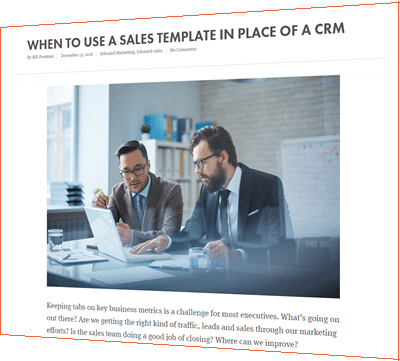It’s important to make the search engines happy. Search engine optimization for small businesses, or any size business, can dramatically increase your website traffic.
Search engines traditionally have looked at two fundamental things when they decide who to show in the search results on that first page when your persona goes to make a search. They look at the context and the authority. The context is what’s happening on each page of your website, and the authority is how important your website is on the Internet.

Another kind of “search engine!”
You need to be careful about the keyword selection and think about your personas—not what you want to be known as, but what your personas would call you. So, someone who does work on people who have been in a car accident and have damage to their teeth is technically called a prosthodontist.
You say prosthodontist, but I say, cosmetic dentist!
The problem is that most people would call that person something more like a “cosmetic dentist.” If you compare the number of people searching for each of those phrases, there are a lot more people searching for a cosmetic dentist. Even though the true professional in the field would probably prefer to be known as a prosthodontist, the content that you would want to create and optimize for would be for a cosmetic dentist.
Once you have done some keyword selection and figured out what keywords your personas are going to be looking for, you should think about including those in the page title and in the URL as well as in the content and the description of the page. Those are the basic places that you could optimize to make each page show up a little bit higher in search results.
Best practice: Include your keywords in the page title, the URL, and in the content and description of the page.
You should also think about making your site attractive to both the crawlers and the humans. If a few pictures (and no text) on a site tell the story of a resort in Vermont, Google actually doesn’t know what the site is about. The pictures convey the story to me. But Google can’t see those. Basically, you need to have some text that is describing your business so that the search engines could understand it.
What’s interesting is that authority is actually more important than your on-page SEO. Authority is probably 70 to 80 percent of the reason why any page ranks for any given keyword phrase. Fundamentally, you need more links coming into your website. So if you have a blog, you tend to be producing more interesting content, and you get more links.
Your homepage should have tons and tons of incoming links. Pages besides your homepage, if you have just seven links incoming to your pages from other websites, that actually puts you better off than 85% of the pages on the Internet. Most pages on the Internet have either no links or only a very few links. Getting just seven to ten links into a given page can make a huge difference in the rank of that page in the search engines.
Prepare for the future of search
Where is search going? Today search engines are starting to incorporate additional signals to figure out that authority. Social media has become really important and the “like” is starting to replace or become as important as the link. As people like your content or tweet your content, that is adding authority to your website. What you want to be doing today is leveraging that phenomenon in order to build more and more authority.
Some of the things you should be doing for SEO include using keywords in the language that your buyer persona uses. Focus on great content more than technical tweaks, because that great content is what’s going to attract a lot of links and a lot of “likes.” Train the people creating content within your business on SEO.
My advice for the road ahead would be to stop thinking like a marketer or stop thinking especially like an advertiser; think a lot more like a publisher and a socializer. That’s what attracts a lot of people to your website, helps you turn marketing a company asset.
Is your website optimized for lead generation?
Proper use of keywords and focusing your content on your buyer persona are just a couple pieces of the lead generation puzzle. Learn best practices for lead generation on your website by attending our free webinar, “Optimize Your Website for Maximum Lead Flow.” We designed this webinar for marketers, not techies, and you’ll learn the whole process of effective lead generation.
Photos courtesy of skippyjon.
![]()





